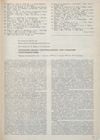Search
for
Sort by
Research
180-210 / 1000+ results
research Finasteride Versus Cyproterone Acetate-Estrogen Regimens in the Treatment of Hirsutism
Finasteride and CPA-EE2 equally reduce hirsutism, but affect hormone levels differently.

research Comparison of Diane 35 and Diane 35 Plus Finasteride in the Treatment of Hirsutism
Diane 35 plus finasteride is more effective for treating hirsutism.

research Treatment of Hirsutism: Comparisons Between Different Antiandrogens with Central and Peripheral Effects
Finasteride, CPA, and flutamide are all equally effective in reducing excessive hair growth in women.

research Hormonal Therapy for Acne: Why Not as First Line Therapy? Facts and Controversies
Hormonal treatments can help with acne but are not the first choice due to side effects and the need for careful patient selection.

research Treatment Guidelines in Adult Women: Effectiveness of Hormonal Therapy in Treating Acne Vulgaris
Hormonal therapy is effective for treating acne in adult women, especially with signs of high androgen levels.

research Phytochemicals as Emerging Therapeutic Agents for Alopecia Treatment
Plant-based chemicals may help hair growth and prevent hair loss but need more research to compete with current treatments.
research The Effect of Two Combined Oral Contraceptives Containing Either Drospirenone or Cyproterone Acetate on Acne and Seborrhea
Both oral contraceptives reduced acne effectively and had similar positive effects on skin oiliness and hair growth.

research Faculty Opinions Recommendation of Finasteride Treatment of Female Pattern Hair Loss
Oral finasteride, combined with drospirenone, improved hair loss in 62% of premenopausal women, with no reported side effects.

research Association of Acne Tarda with Endocrinological Disorders
Adult acne is often related to hormonal disorders, especially in women, and may need long-term treatment involving specialists.
research Visualizing Androgen Receptor Activity in Male and Female Mice
Androgen receptors are active in many tissues of both male and female mice, not just reproductive organs.

research Inhibitory Effects of Serenoa Repens on the Kinetics of Pig Prostatic Microsomal 5α-Reductase Activity
Saw palmetto extract can block the enzyme that converts testosterone in pig prostate cells.
research The Antiandrogenic Action of 4-Androsten-3-One-17β-Carboxylic Acid and Its Methyl Ester on Hamster Flank Organ
The chemicals 17βC and its methyl ester can block the effects of testosterone on hamster skin but not the effects of DHT.

research Antiandrogenic Activities of Glycyrrhiza Glabra in Male Rats
Liquorice may reduce testosterone and affect male reproductive organs, potentially helping treat conditions like prostate cancer.

research Minoxidil Acts as an Antiandrogen: A Study of 5α-Reductase Type 2 Gene Expression in a Human Keratinocyte Cell Line
Minoxidil may help treat hair loss by reducing the activity of a specific enzyme linked to baldness.
research Contraception Progestin Type and Female Pattern Hair Loss
Newer contraceptives with less androgenic progestins may reduce female hair loss.
research 5α-Reductase Inhibitory Potential of Hibiscus Rosa Sinensis: Effective for the Management of Alopecia
Hibiscus rosa sinensis may help manage hair loss.
research 5α-Reductase Inhibitory Components as Antiandrogens From Herbal Medicine
A plant extract was found to effectively block an enzyme related to male hormone-related diseases.
research Process Validation of Beta-Sitosterol Hair Gel Formulation and Evaluation of 5 Alpha Reductase Inhibition In Vitro for the Treatment of Androgenetic Alopecia
The β-sitosterol hair gel is effective and promising for treating hair loss.
research Androgen Metabolism in Hirsute Patients Treated with Cyproterone Acetate
Cyproterone acetate effectively reduced hair growth in hirsute patients by lowering androgen levels and altering androgen metabolism.

research Effect of Carbamates on mRNA Encoding Lipid Enzymes in Hamster Flank Organs
Carbamates may help treat androgen-dependent conditions by changing how certain lipid enzymes are produced.

research Therapeutic Effect of Spironolactone in Hyperandrogenism Syndrome
Spironolactone effectively reduces symptoms of hyperandrogenism but has some side effects.

research The Challenging Role of Antiandrogens in the Management of Polycystic Ovary Syndrome
Antiandrogens are used to manage polycystic ovary syndrome by reducing androgen levels or controlling their effects, often combined with lifestyle changes and other treatments.

research Nutrition Strategy and Lifestyle in Polycystic Ovary Syndrome: Narrative Review
Eating healthy, exercising, and taking certain supplements can help manage Polycystic Ovary Syndrome symptoms.
research Antiandrogen Therapy of Acne, Hair Loss, and Hirsutism
Cyproterone acetate is an effective treatment for women with acne, hair loss, and excessive hair growth.

research Solubilities of Flutamide, Dutasteride, and Finasteride as Antiandrogenic Agents in Supercritical Carbon Dioxide: Measurement and Correlation
Flutamide, dutasteride, and finasteride dissolve differently in supercritical carbon dioxide, with dutasteride dissolving the least.

research Research Brief: Self-Reports of Persistent Antiandrogenic, Estrogenic, Physical, and Psychological Effects of Finasteride Usage Among Men
Finasteride use can cause lasting negative effects like sexual dysfunction, depression, anxiety, and cognitive issues.

research Evaluation of Derma Genie-H001 as a Functional Cosmetic Ingredient for Hair Loss Improvement: Assessing Anti-Inflammatory, Antioxidative, Photoprotective, Antiandrogenic, and Hair Growth-Inductive Effects
Derma Genie™-H001 can help prevent hair loss and promote hair growth.

research Antiandrogenic Therapy With Finasteride Attenuates Cardiac Hypertrophy and Left Ventricular Dysfunction
Finasteride helps reduce heart issues and improves heart function.

research Mixed Antiandrogenic Chemicals at Low Individual Doses Produce Reproductive Tract Malformations in the Male Rat
Low doses of mixed chemicals cause permanent reproductive malformations in male rats.